 The logarithm of any power of a number is equal to the logarithm of the number multiplied by the exponent of the power. The logarithm of any power of a number is equal to the logarithm of the number multiplied by the exponent of the power.  Academic Algebra - Page 413by William James Milne - 1901 - 444 pagesFull view Academic Algebra - Page 413by William James Milne - 1901 - 444 pagesFull view - About this book
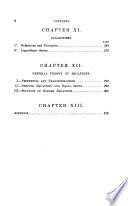 | William Guy Peck - Algebra - 1875 - 348 pages
...definition, a px _ m p . px = Log m'; . . . . (7) hence, the following principle: 3°. The logarithm of any power of a number is equal to the logarithm of the number multiplied by the exponent of the power. If we extract any root cf both members of (3), denoted by r, we have, a r =... | |
 | Horatio Nelson Robinson - Algebra - 1875 - 430 pages
...division, — = a" ; n therefore, log. I — ) = x — z = log. 7W — log. n. 5. The logarithm of any power of a number is equal to the logarithm of the number multiplied by the exponent of the power. For, let m=cf; then z = log. m. By involution, m' = a" ; therefore, log. (mr)... | |
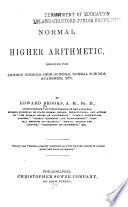 | Edward Brooks - Arithmetic - 1877 - 564 pages
...have, »•— f Hence, log ( — J = m — n, or, = log M — log N. PRIN. 6. — The logarithm of any power of a number is equal to the logarithm of the number multiplied by the exponent of the power. For, since if we raise both members to the nth power, we have, 10 mn _ M * f... | |
 | Edward Olney - Algebra - 1877 - 466 pages
...x — y is the logarithm of — . Q. K . ». 123. Prop. 3. The logarithm of a power of a number is the logarithm of the number multiplied by the index of the power. DEM. — Let a be the base, and x the logarithm of m. Then a1 = m ; and raising both to any power,... | |
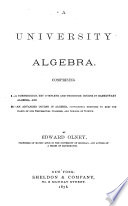 | Edward Olney - 1878 - 360 pages
...x — y is the logarithm m of — . QED n 180. Prop. 3. — The logarithm of a power of a number is the logarithm of the number multiplied by the index of the power. DEM. — Let a be the base, and x the logarithm of m. Then a'=m ; and raising both to any power, as... | |
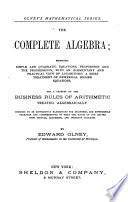 | Edward Olney - Algebra - 1878 - 516 pages
...Whence x — y is the logarithm of — . QED 123. Prop. 3. The logarithm of a power of a number is the logarithm of the number multiplied by the index of the power. DEM.— Let a be the base, and a; the logarithm of m. Then a* = m ; and raising both to any power,... | |
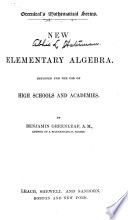 | Benjamin Greenleaf - Algebra - 1879 - 350 pages
...dividing, member by member, we have in which x — у = log„ í — V 3fiOi The logarithm of any power of a number is equal to the logarithm of the number, multiplied by the exponent of the power. For, assume the equation, ax = m, and raising both members to the power p, we... | |
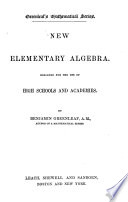 | Benjamin Greenleaf - 1879 - 346 pages
...n, and dividing, member by member, we have in which x — y = loga ( —V 360. The logarithm of any power of a number is equal to the logarithm of the number, multiplied by the exponent of the power. For, assume the equation, of =zm, and raising both members to the power p, we... | |
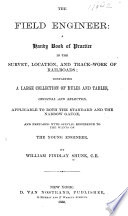 | William Findlay Shunk - Railroad engineering - 1880 - 362 pages
...quotient is equal to the logarithm of the dividend diminished by that of the divisor. The logarithm of any power of a number is equal to the logarithm of the number multiplied by the exponent of the power. The logarithm of any root of a number is equal to the logarithm of the number... | |
 | Horatio Nelson Robinson - Trigonometry - 1880 - 228 pages
...exponent equal to 3x5; thus, (a i ) i = a 1 i, and, generally, (a") m =a nm . Hence, the logarithm of the power of a number is equal to the logarithm of the number multiplied by the exponent of the pmver. To extract the 5th root of the number a1, we write a, giving it an exponent... | |
| |